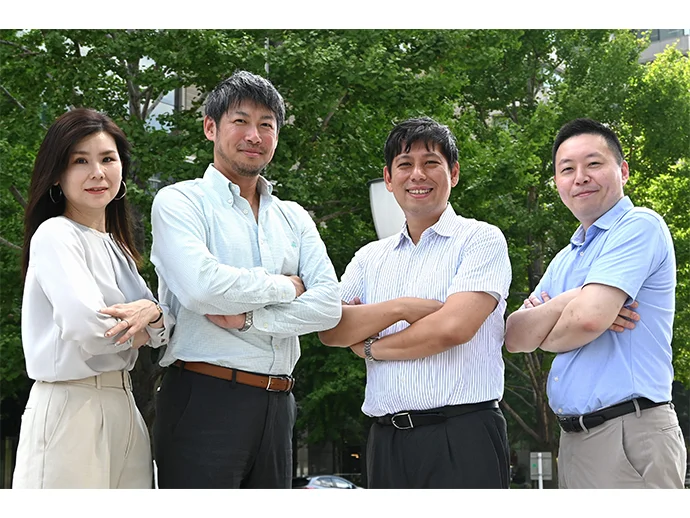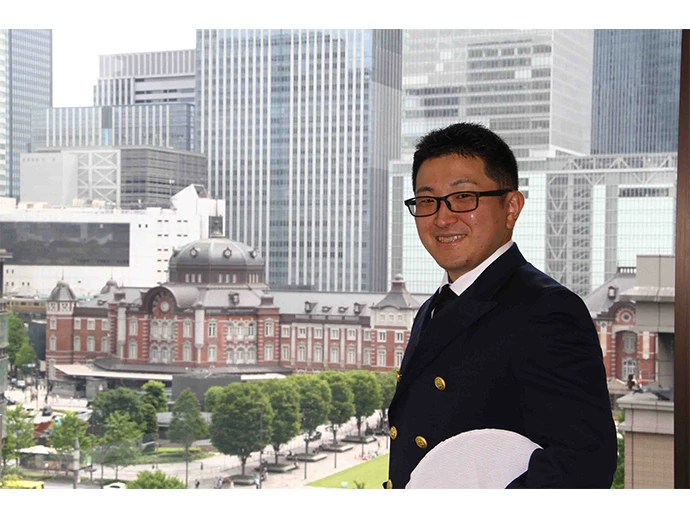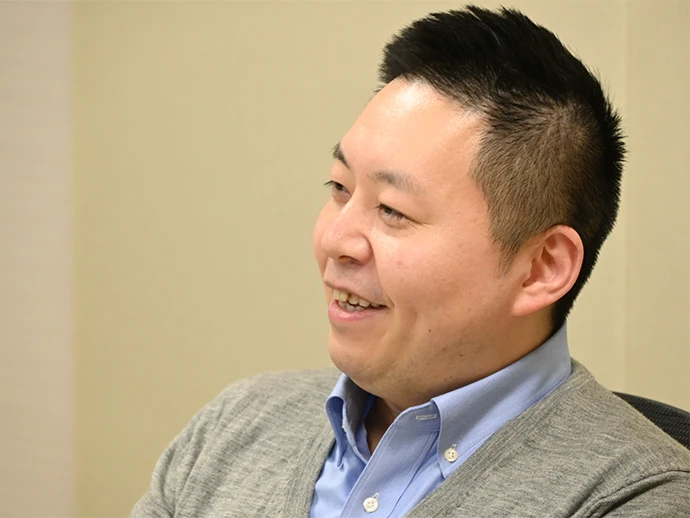NYK Line’s First Female Chief Engineer: A Role Model for Future Generations
Released : Jul. 03, 2025
Updated : Oct. 20, 2025
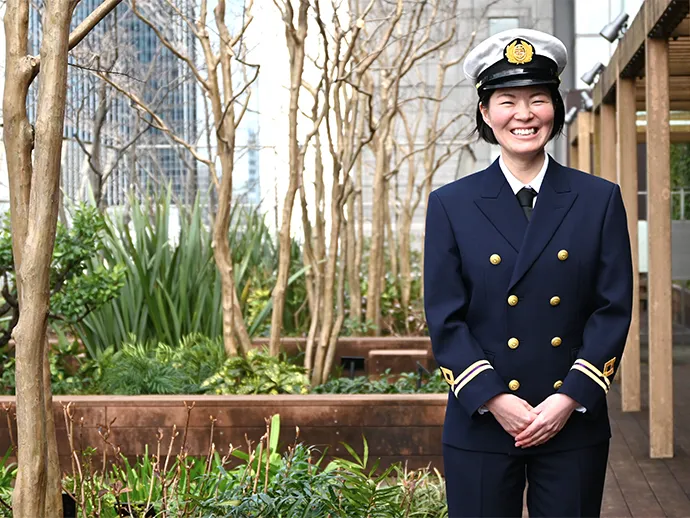
Marine engineers are integral to the safe operation of vessels by overseeing complex mechanical systems, including engines, generators, boilers, and more. The chief engineer is responsible for leading and supervising all engineers on board. In April 2025, NYK Line marked a historic milestone by appointing Miki Yano as its first female chief engineer. In this interview, she shares insights into her career choice, the rewards of her work, and her aspirations in this groundbreaking role.
A Passion for Sea and Ships: The Journey to Marine Engineering
Since high school, I had been captivated by careers related to the sea, which inspired me to enroll in the Faculty of Maritime Sciences at Kobe University (now the Faculty of Ocean Science and Technology). Growing up in the mountainous region of Fukuoka Prefecture, I often puzzled my family and teachers. “Why study the ocean?” they would ask. (Yano laughs)
Yet, my initial interest wasn’t necessarily in working aboard ships but rather in pursuing specialized scientific studies and broadening my horizons. That’s how I became interested in ships, shipbuilding, and the ocean industry. During my first spring at university, I participated in a training voyage that provided my first hands-on experience as both a deck and an engine officer aboard a training ship. An instructor remarked, “If you want to work on an oceangoing vessel and get up close to an engine as tall as a five-story building, you should become a marine engineer.” Those words left a lasting impression.
Although it was a small training vessel, I felt the thrill of operating the very heart of the ship, and I was captivated by the idea that even larger, more powerful engines were out there.
As my studies progressed, I learned that ship engineers are responsible for a wide range of onboard systems — not only propulsion engines but also generators, refrigeration units, air conditioning systems, elevators, and more. All of these require hands-on maintenance using our own technical skills.
Unlike on land, where servicing such diverse equipment might require separate licenses, holding a marine engineer’s license authorizes you to inspect, maintain, and repair all onboard equipment. This comprehensive scope of responsibility made the profession feel exceptionally appealing and solidified my decision to specialize in marine engineering and pursue a career as a ship engineer.
I joined NYK Line in 2011 after graduating, a decision that marked the beginning of an exciting professional journey.
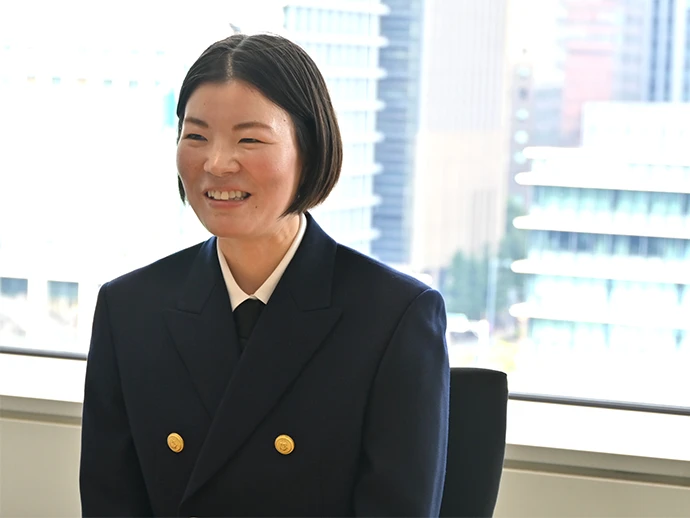
Miki Yano was appointed NYK’s first female chief engineer in April 2025.
Teamwork and Communication: Vital to Life at Sea
After joining the company, I started as a trainee and received my first assignment as a third engineer on an LNG carrier. Over time, I gained valuable experience on various types of vessels and in shore-based roles, progressively advancing to second engineer and then to first engineer. With each promotion, the responsibility intensified, and I became accountable for increasingly critical equipment systems that are essential to the ship’s operations.
A significant turning point in my career came when I was promoted from second engineer to first engineer. This milestone not only increased my technical responsibilities but also required a fundamental shift in mindset. I began managing junior crew members, and I became acutely aware of how my words and actions can affect those around me. I remember devouring books on leadership and management at the time.
On long voyages that can last for several months, unexpected equipment issues are inevitable. I’ve experienced alarms in the middle of the night that led to the discovery of oil leaks or system malfunctions. But tackling these problems together and sharing our expertise gives us a strong sense of teamwork and accomplishment. When we finally get the machinery running smoothly again, it lifts everyone’s spirits.
Before each departure, I even find myself gently patting each piece of equipment and whispering, “Good boy.” That’s how fond I’ve grown of them over time.
A ship’s engine department typically comprises around 10 crew members, and together we inspect and repair engines as large as five-story buildings. That’s why effective teamwork and clear communication are indispensable on board.
In fact, life on a ship can feel a lot like living in a lively college dormitory. I once viewed a documentary about a university track team’s dorm life and couldn’t help but think, “That’s just like us.” The resemblance was striking. Spending months together fosters strong personal bonds. As a first engineer, supporting the mental well-being of junior crew members is also part of my role. I always strive to create an open, approachable atmosphere that enables each person to perform at their best.
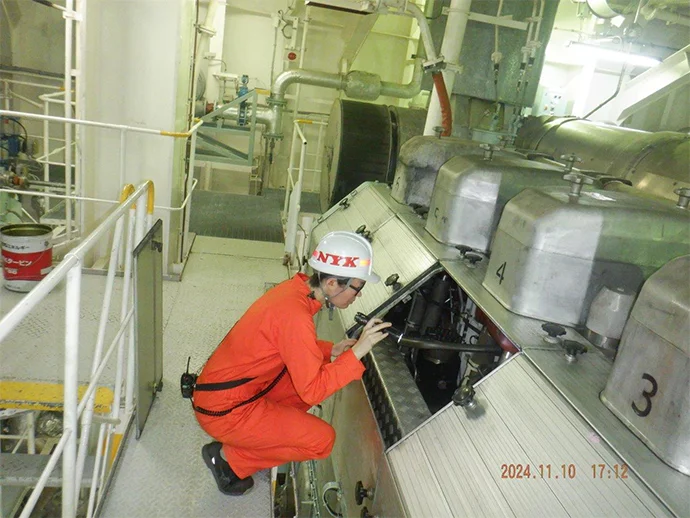
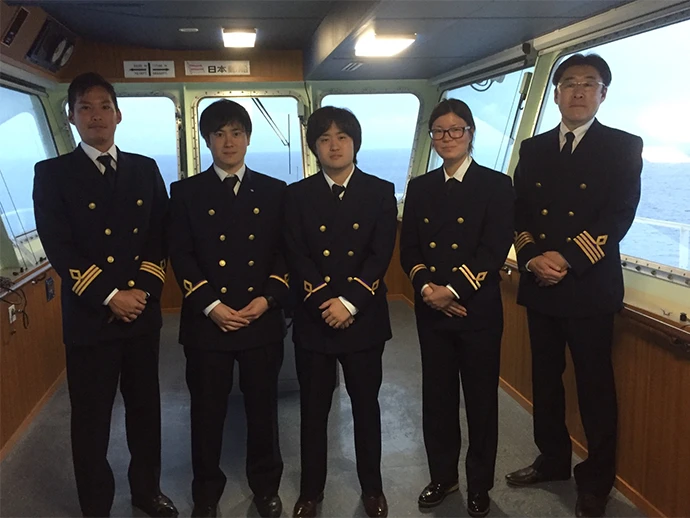
Rewards and Required Skills of a Marine Engineer
After more than a decade of experience, I find the greatest fulfillment in the trust others place in me to get the job done.
One of the most memorable moments in my career came during my time as a second engineer. Ships undergo large-scale maintenance known as "open inspection," where major components like engines and generators are disassembled, cleaned, inspected, and reassembled. On one occasion, the first engineer entrusted me completely with this process. Being assigned such a critical responsibility was a tremendous honor. Planning the daily work schedule and coordinating tasks with junior crew members wasn’t easy, but when everything came together and the test run went smoothly, the sense of accomplishment was indescribable. That moment still stands out as one of the most rewarding highlights of my career as a marine engineer.
All marine engineers must be committed to solving problems without ever giving up. Serious mechanical issues can arise mid-voyage, and if an engineer throws in the towel, the cargo may never reach its destination. Perseverance is non-negotiable.
Now, as a chief engineer, my role has shifted from hands-on work to overseeing the entire engine department. That’s why, beyond perseverance, I believe that generosity of spirit is also essential. It’s about trusting your team and stepping in with support when needed. When working with highly experienced crew members, I often find myself thinking, “Their approach might be better than mine.” It’s easy to fall into the mindset that, as a senior officer, you must make every decision. But I strive to be the kind of leader who listens closely to others and carefully determines the best course of action based on the collective expertise of my team.


Long-Awaited Promotion to Chief Engineer: Giving Back to the Company and Inspiring the Next Generation
Becoming a chief engineer had long been one of my professional aspirations. There are many hurdles to overcome before reaching that point, such as acquiring the necessary certifications and accumulating the requisite sea time. The final step is an interview, and when I received the notification, I was deeply moved and resolved to seize the opportunity.
At the same time, I fully recognize that I wouldn’t be where I am today without the unwavering support of the many people I’ve met at NYK Line — supervisors, peers, and junior colleagues who have stood by me throughout my journey.
My decision to join NYK was inspired by a training voyage I joined while at university. On board, I met NYK officers who were serving as instructors. Their professionalism left a lasting impression, and I remember thinking, “I want to work with people like them.”
Later, when I was uncertain about whether to take on the challenge of becoming a chief engineer, a senior colleague offered advice that has continued to guide me: “Don’t dwell too much on your career path. What matters is showing your full potential where you are now. That’s how you gain the trust and recognition needed to become a chief engineer.”
These words have become a guiding principle, continually reminding me of the importance of staying grounded and present.
Having received so much from those around me and from the company itself, I now feel a strong desire to give something back. That is the goal I’m committed to pursuing next.
It’s also true that female marine engineers, especially in the engine department, are still few in number around the world. Consequently, many people may never even encounter someone like me in this role. That’s why I want to proudly share the message that NYK is a company where women can genuinely thrive as marine engineers working on the front line.
If more people come to see how fulfilling this career can be, I would be truly happy. As NYK’s first female chief engineer, I hope to become a role model who inspires the next generation to pursue their dreams.
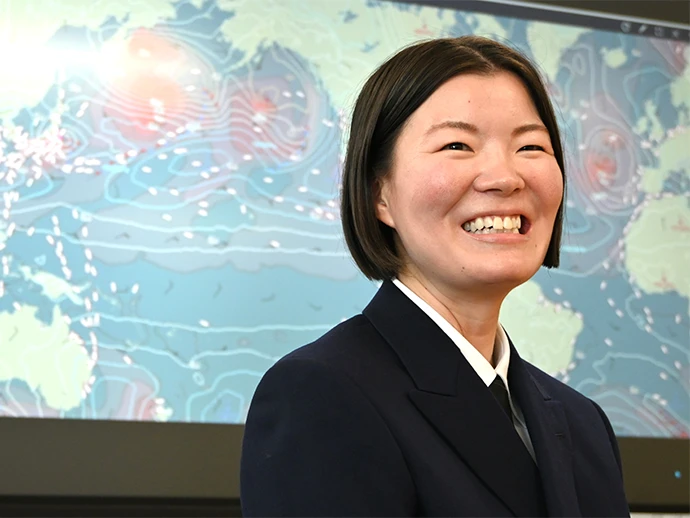
Known for her warm smile, Chief Engineer Yano strives to create an approachable atmosphere for her team.
